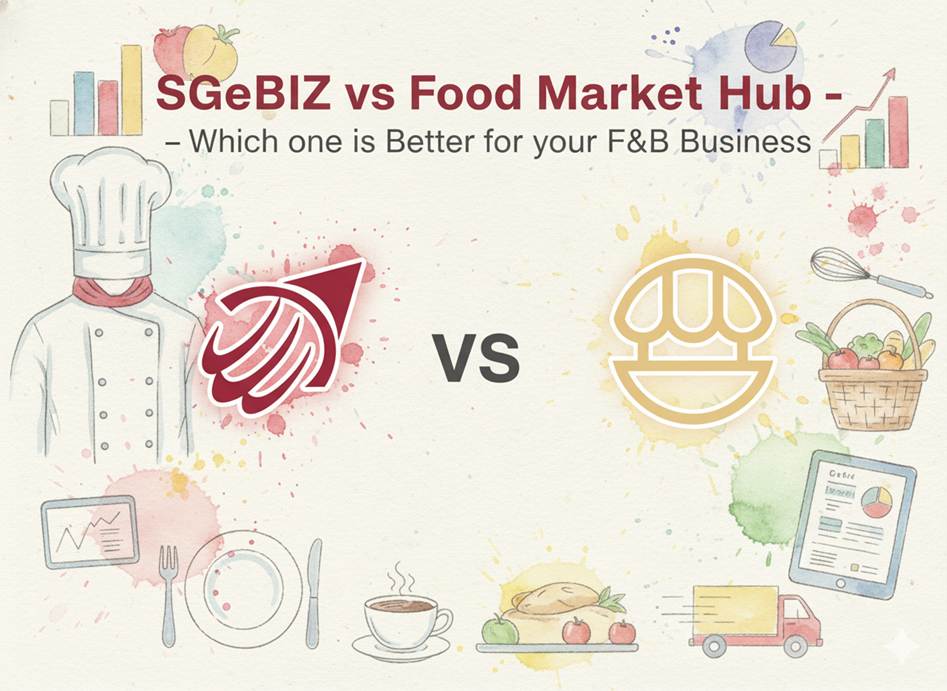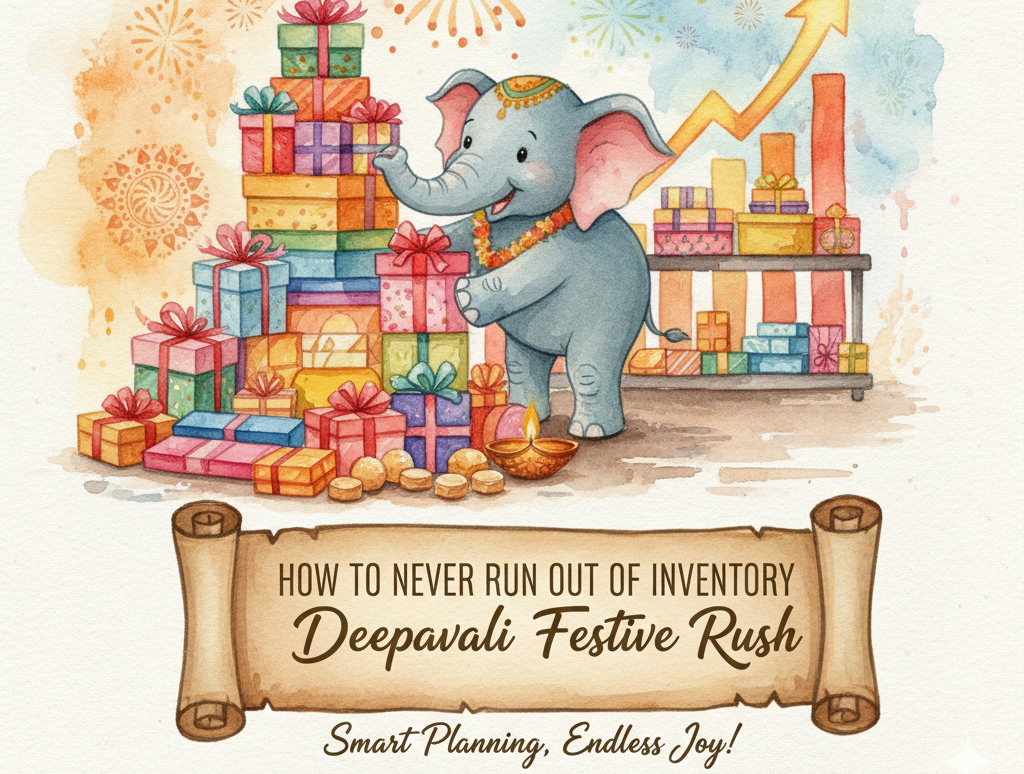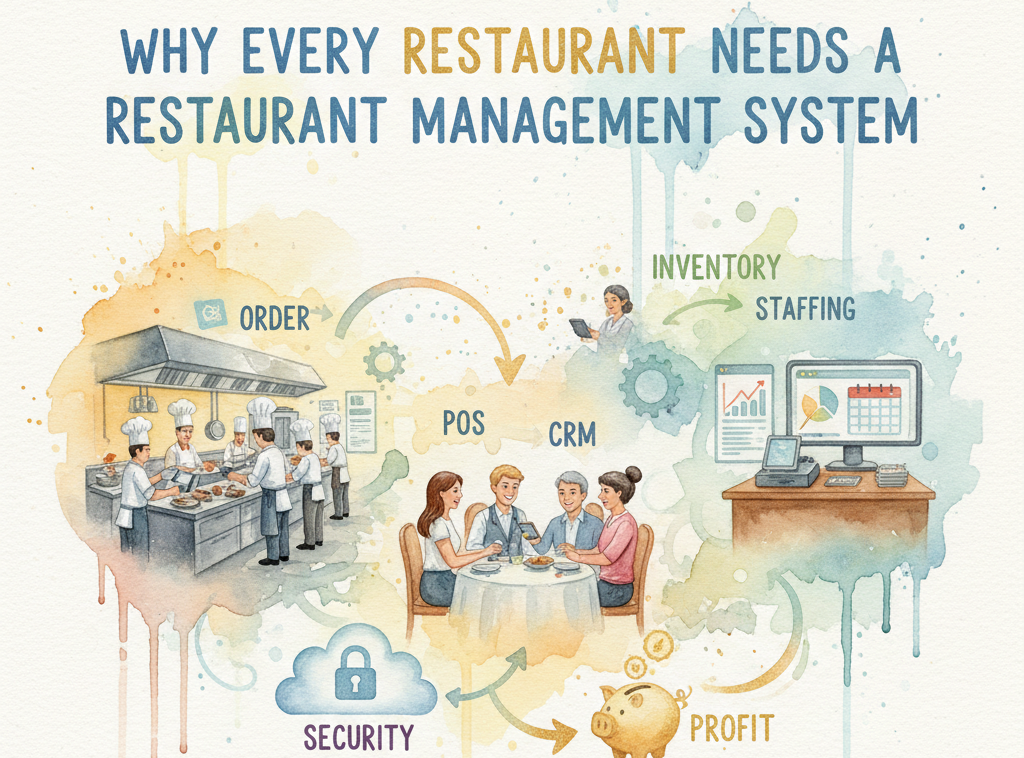How to Save Wastage Costs in Quick Service Restaurants?

Running a Quick Service Restaurant (QSR) means managing a lot of moving parts. You might think big operational challenges, like equipment maintenance or staff scheduling, are where your money goes. But the truth is, small everyday wastages could be quietly eating into your profits. It’s the little things, like food that spoils or ingredients that go unused, that can build up over time and cost you a lot of money. Let me explain how this works and how you can turn things around.
A report by the World Economic Forum highlights that about 1.3 billion tons of food are wasted globally each year. In Malaysia alone, this translates to around RM 18 billion in losses annually. This is not just about money. It’s also about the environment. Food waste contributes significantly to greenhouse gas emissions. You, understanding the impact of these small wastages is the first step to finding solutions.
Effective Inventory Management Can Save Your Quick Service Restaurant

You might think inventory management is just a back-office task, but it’s so much more than that. It’s one of the most powerful tools you have to control costs in your QSR. Think of it as the foundation of your business operations. When you manage inventory effectively, you’re not just saving money—you’re also reducing waste and making your restaurant more sustainable.
For example, platforms like Food Market Hub can help you track your stock levels in real time. This means you always know what’s available and what’s running low. By doing this, you avoid over-ordering and ensure ingredients are used before they spoil. Imagine spending RM 20,000 annually on food supplies. By reducing wastage by just 10%, you save RM 2,000. That’s money you can reinvest into your business.
Another benefit of effective inventory management is that it helps you spot patterns in waste. Let’s say one ingredient always gets thrown out because it’s rarely used. By reducing your orders for that item, you’re not just saving money; you’re also cutting down on waste. Big names in the quick-service restaurant industry, like KFC and Pizza Hut, use these strategies to stay profitable.
The Role of Well-Managed Procurement
Have you ever felt frustrated with your supply orders? Something may arrive too late or not in the quantity you need. These inefficiencies add to waste, and that’s where a solution like Food Market Hub comes in. This digital platform connects QSRs with suppliers, making procurement a smooth and efficient process.
With a system like this, you can build better relationships with your suppliers. When you’re consistently ordering the right quantities, suppliers can provide better service. This means fewer delays and less spoilage. You’ll also gain access to detailed analytics that help you make smarter decisions. For example, the data can show you exactly how much of an item you need, so you’re not left with too much or too little.
One thing I’ve noticed in many restaurants is how difficult it can be to balance supply with demand. Advanced platforms give you better visibility into your supply chain. If there’s a sudden spike in customer orders, you can adjust quickly. This flexibility is crucial in the quick-service restaurant industry, where customer preferences can change rapidly.
Why Advanced Procurement Management Systems Matter?
Advanced procurement management systems like Food Market Hub allow you to invite your suppliers so that they can send you your ingredients. Your suppliers don’t have to download or onboard on the platform. You can still see all your suppliers in the system. It makes it easier for you to track all the ingredients without getting confused.
The Environmental and Financial Impact of Wastage

When you think about waste, it’s easy to focus only on the financial loss. But there’s a bigger picture. Every piece of wasted food adds to landfills, contributing to greenhouse gas emissions. As a QSR owner, you have the power to make a difference. By reducing waste, you’re not just saving money—you’re also protecting the environment.
Big players like KFC and Pizza Hut have already adopted waste reduction strategies. They’re not just doing it to make more profits; they’re also showing customers that they care about sustainability. You can do the same. Customers today are more likely to support businesses that align with their values. By taking steps to reduce waste, you’re enhancing your brand’s reputation while improving your finances.
FAQs
- What can be the hidden costs of wastage in a QSR?
Small wastages, like unused ingredients or spoiled food, can add up to significant financial losses over time. According to the World Economic Forum, Malaysia’s food waste costs RM 18 billion annually. For your QSR, this means less profit and more environmental impact. - How can effective inventory management help reduce wastage?
Inventory management systems like Food Market Hub track stock levels in real time. They help you avoid over-ordering and use ingredients before they spoil. This saves money and reduces waste. - What is the role of advanced Procurement Systems in a QSR?
Advanced Procurement systems like Food Market Hub make it easier for your track all your suppliers from one place. You don’t have to get confused between your suppliers and your bills will be in one place. - Why is reducing waste important in the quick-service restaurant industry?
Reducing waste not only protects your profit margins but also shows customers that your business cares about sustainability. This can enhance your reputation and attract more loyal customers. - How can QSRs streamline procurement?
Platforms like Food Market Hub connect you with suppliers, making procurement more efficient. They help you order the right quantities at the right time, reducing waste and improving supplier relationships.
Managing a QSR is no easy task, but tackling waste is one way to make a big impact. By using tools like Food Market Hub for inventory and procurement, you can save money and improve your operations. Remember, small changes add up over time. Reducing waste not only boosts your bottom line but also shows your customers that you’re committed to making a difference. Take the first step today and watch your business thrive.










